Enterprises are constantly seeking ways to streamline their operations and make data-driven decisions.
Enterprise Resource Planning (ERP) software has emerged as a powerful solution that can transform the way organizations operate. ERP software offers a multitude of benefits that extend beyond mere cost reduction or process optimization. In this article, you will explore the numerous advantages that come with implementing ERP software in your enterprise, highlighting how it can enhance productivity, streamline workflows, improve decision-making, and ultimately drive sustainable growth in an increasingly complex business environment.
Streamlined Operations
Implementing ERP software streamlines operations by providing a centralized platform for managing various functions, such as finance, human resources, inventory, and supply chain management. This integration eliminates the need for multiple, disjointed systems, leading to improved efficiency and reduced errors.
Enhanced Data Visibility
ERP systems have significantly enhanced data visibility within enterprises. By centralizing data from various departments and processes, ERP solutions provide a unified view of critical information. This transparency allows decision-makers to access real-time data, monitor performance metrics, and identify trends effortlessly. With improved data visibility, businesses can make informed decisions promptly, respond to challenges proactively, and streamline their operations for greater efficiency and competitiveness.
Increased Productivity
ERP systems offer various benefits to enhance productivity significantly. One key mechanism is the automation of routine tasks, liberating employees to focus on projects that deliver more excellent value to the organization. Moreover, ERP streamlines processes, expediting task completion and minimizing time spent searching for essential information. As employees have access to a detailed view of the entire company, there's no need for them to seek out specific data or inquire about the intricacies of certain processes from others.
Improved Decision-Making
Improved decision-making is a cornerstone benefit of implementing ERP (Enterprise Resource Planning) systems in organizations. ERP software provides decision-makers with access to real-time data and detailed insights into various aspects of the business, such as financials, inventory, and customer relationships. This data-driven approach enables leaders to make informed and strategic decisions rapidly. By eliminating assumptions and providing a detailed view of operations, ERP systems empower organizations to respond to market changes, seize opportunities, and mitigate risks effectively. Improved decision-making through ERP contributes to a more easily, competitive, and future-ready enterprise.
Cost Efficiency
ERP software, through process streamlining and reduced manual efforts, can significantly reduce operational costs. This cost-effectiveness is accomplished by optimizing resource allocation, minimizing errors, and enhancing inventory control. As tasks become automated and more efficient, organizations can allocate their resources more wisely, resulting in significant cost savings. Furthermore, ERP systems contribute to better financial management, ultimately this helps increase profits.
Mobile Accessibility
ERP mobile-friendly options empower enterprises by providing access to critical business data and functions on the go. With the advent of mobile apps and web-based interfaces, you can conveniently access ERP systems from smartphones and tablets, ensuring you remain connected and informed no matter where you are. This flexibility enables real-time decision-making, quicker response to operational issues, and improved collaboration among employees, regardless of their physical location. This flexibility enhances productivity and responsiveness.
Scalability
ERP systems are a keystone in enhancing the scalability of organizations. ERP solutions can seamlessly adapt to the changing needs of a growing business. ERP allows for the addition of new functionalities, users, and departments, ensuring that the system remains in sync with the organization's expansion. This scalability empowers companies to handle increased data volumes, transactions, and complexities without disrupting operations. Moreover, ERP's centralized platform fosters standardized processes across departments, facilitating efficient management of growth while maintaining operational effectiveness.
Compliance and Security
ERP systems often incorporate robust security measures, such as user authentication, encryption, and access controls, to safeguard sensitive data and protect against unauthorized access. Moreover, ERP software can assist organizations in adhering to industry-specific regulations and standards by automating compliance processes, tracking necessary documentation, and providing audit trails. This not only mitigates the risk of non-compliance but also helps avoid potential legal issues and associated fines. Moreover, ERP systems act as a shield, fortifying an enterprise's data and operations against security threats and regulatory challenges, thereby promoting a safer and more compliant business environment.
Real-time Analytics
ERP systems enhance real-time analytics for businesses. By gathering data from various departments and processes in one platform, ERP enables organizations to access up-to-the-minute information on critical metrics, such as sales, inventory levels, and financial performance. This real-time data empowers decision-makers to make informed choices swiftly, respond to market dynamics, and identify emerging trends promptly. Furthermore, ERP's advanced reporting and analytics tools provide the capability to generate customizable reports and visualize data trends, facilitating deeper insights and more accurate forecasting.
Other Benefits Implementing ERP Software
Better Customer Relationship Management: ERP software often incorporates Customer Relationship Management (CRM) capabilities, which prove invaluable in nurturing customer relationships. This contributes to heightened customer satisfaction, improved retention rates, and ultimately, increased sales.
Reduced Redundancy: ERP software eliminates redundancy by centralizing data and automating routine tasks. This not only saves time but also reduces the chances of errors caused by manual data entry.
Enhanced Collaboration: Collaboration within an organization becomes more efficient with ERP software. Teams can access the same data and documents, facilitating collaboration and reducing communication gaps.
Employee Productivity: By automating repetitive tasks and providing easy access to information, ERP software empowers employees to be more productive and focus on value-added activities.
Customer Satisfaction: Efficient operations, better inventory management, and improved customer relationship management contribute to higher customer satisfaction levels, leading to increased loyalty and referrals.
Choosing the Right ERP Solution
Choosing the right ERP software is a pivotal decision for any organization, as it can significantly impact enterprise operations, efficiency, and long-term success. In this regard, Prismatic Technologies stands out as one of the leading vendors in ERP software solutions. With a track record of excellence and innovation, Prismatic Technologies offers a comprehensive suite of ERP solutions tailored to meet the unique needs of various industries.
Their commitment to pioneering technology, user-friendly interfaces, and robust support services makes them a top choice for businesses seeking to streamline processes, reduce redundancy, and enhance productivity. When you choose Prismatic Technologies as your ERP partner, you're not just selecting software; you're investing in a strategic tool that can drive growth, improve decision-making, and propel your organization into a more efficient and competitive future.

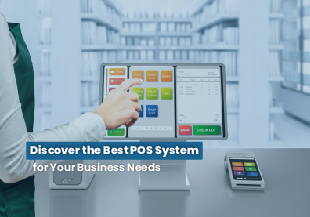
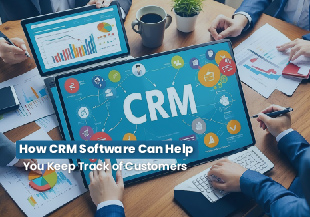
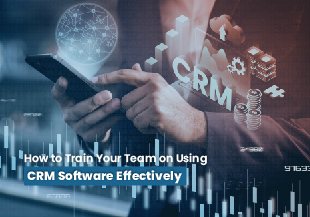
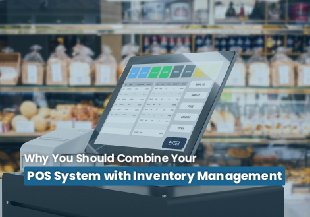
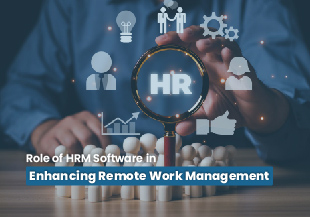
 Chat with Prismatic Bot
Chat with Prismatic Bot